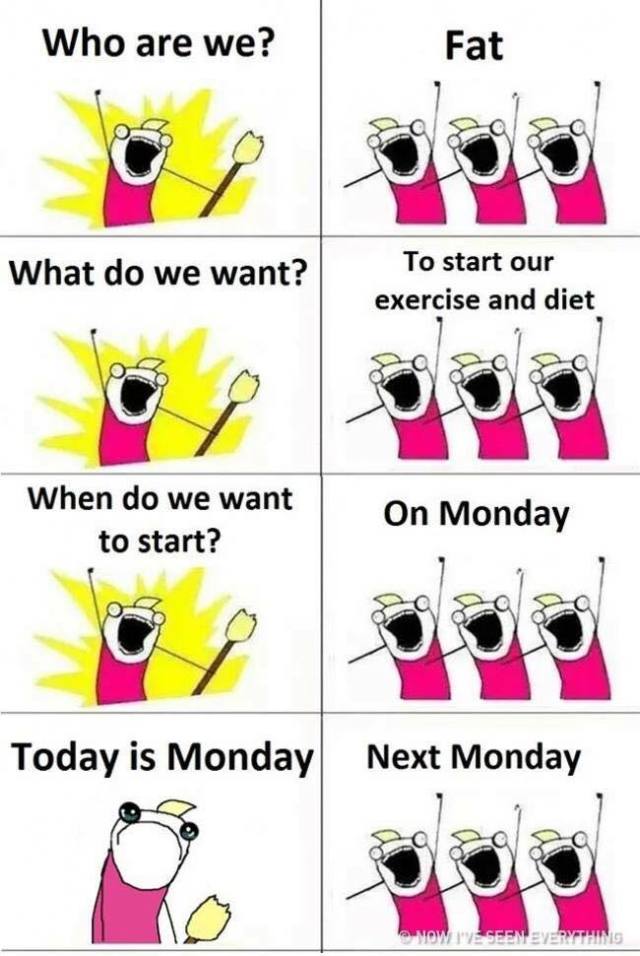
Após um fim de semana de delícias e excessos, a idéia de muitos é: “Segunda-feira vou começar uma dieta, um regime!”
A forma mais comum de dizermos isso é:
I’m going on a diet on Monday!

What’s your decision? To go on a diet or to completely change your lifestyle? Qual é a sua decisão? Fazer uma dieta ou mudar completamente seu estilo de vida?
If I decide to go on a diet, my husband will go on a diet too. Se eu decidir fazer regime, meu marido vai fazer dieta também.

To start a diet, também é uma combinação possível para falarmos que vamos “começar um regime” ou “começar uma dieta”.
I’ve decided to start a diet… on Monday. Eu decidi começar uma dieta… na segunda.
We’re usually optimistic when we start a diet. Nós geralmente estamos otimistas quando começamos um regime.

Mas se queremos dizer “estar de regime” ou “estar de dieta”, a expressão é to be on a diet.
Life’s too short to be on a diet. A vida é curta demais para estar de regime.
Being on a diet is not as hard as most people think. Fazer regime não é tão ruim quanto a maioria das pessoas pensa.
You may be on a diet but you need to exercise as well. Você pode estar de dieta, mas você precisa se exercitar também.

Também existe a possibilidade de utilizarmos somente o verbo to diet (I need to diet – “Eu preciso fazer uma dieta”, “Eu preciso fazer um regime”), mas as opções anteriores são mais comuns.

https://blog.influx.com.br/como-se-diz-fazer-dieta-em-ingles




